INSIDE ISSUE 19.08 | Feb. 21, 2020
 BIG STORY: Don’t expect S.C. gun debate in 2020, some say
BIG STORY: Don’t expect S.C. gun debate in 2020, some say
NEWS BRIEFS: Palmetto litterbugs, Santee Cooper, candidates, more
COMMENTARY, Brack: Graham to get mute button for 6 months
SPOTLIGHT: Conservation Voters of South Carolina
FEEDBACK: Pettigru quote is very familiar
MYSTERY PHOTO: Water tower
Don’t expect S.C. gun debate in 2020, some say

By Lindsay Street, Statehouse correspondent | A person dies from gun wounds every 11 hours in South Carolina, but the state legislature is not any closer to seeing any new gun-related laws.
A bevy of bills — from those seeking to curb gun purchases for some to others that want to expand gun access for all — are likely to meet a quiet demise in the second year of a two-year session that is laser-focused on education and Santee Cooper.

“We’re at a standstill both with gun reform and gun expansion,” Charleston Democratic Sen. Marlon Kimpson said this week. “I don’t think you’ll see any of those bills come to the floor this year and, if they do, it will be purely for political posturing.”
Senate Bill 139, which would allow anyone to carry a weapon without a permit, is on the Senate calendar for second reading, but falls further behind every day on the chamber’s contested slate. Carrying weapons without a permit is known by supporters as “constitutional carry.”
But most bills on either side of the issue remain without hearings in committees. Kimpson is a sponsor of Senate Bill 731, which would expand background checks, also known as closing the Charleston loophole. The bill has been pushed every year since a white supremacist slayed nine black church goers in Charleston in 2015. It would extend the wait time for FBI background checks from three days to five days in South Carolina. It is stuck without a hearing in the Judiciary Committee.
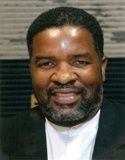
Charleston Democratic Rep. Wendell Gilliard also is sponsor of pending gun-safety legislation .
“There will be other tragedies until we either put up or shut up. That’s the bottom line,” he said this week. “When you look at South Carolina, as a whole, we need gun reform. Guns are any and everywhere and the statistics prove it.”
Latest data results in an “F” for S.C.
The Giffords Law Center, a gun safety group that h says stronger gun laws prevent gun violence, recently gave South Carolina an “F” for its “weak” gun laws. South Carolina has the 12th highest gun death rate in the nation, and the state is ranked seventh for exporting guns used in crimes elsewhere.
The data show a person is killed by a gun in South Carolina every 11 hours. Here are some other statistics from the report card:
- Gun violence is the second leading cause of death for S.C. children under 17.
- More than 65 percent of South Carolina’s domestic violence homicides involve a gun and, from 2007 to 2016, 175 women were killed with a gun by their intimate partner in South Carolina.
- More than 64 percent of all suicide deaths in South Carolina involve firearms. Suicide is the 10th leading cause of death in the state.
While the center called the state’s gun laws “very weak,” it also highlighted that the state allows some mental health record reporting to federal background check databases and has a firearm prohibition for some domestic abusers.
- Previous coverage: In South Carolina, residents want something done about guns.
‘Opposite direction’
In the wake of the Emanuel AME Church shooting in 2015, the grassroots organization Arm-in-Arm was founded. The nonprofit seeks a “middle ground” on the gun debate. Board Chair Peter Zalka recently touted the group’s recruitment of gun owners.
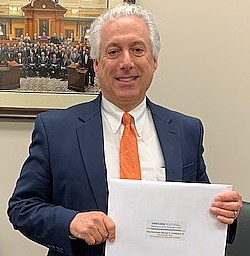
The group also recently decried the legislature’s consideration of two bills, constitutional carry in the Senate, and House Bill 4472, which seeks to allow concealed weapon permit holders to carry openly, known as open carry.
“Not only are we ignoring opportunities to create safer communities, we’re going in the opposite direction with open carry,” Zalka said in a press release.
Arm-in-Arm said South Carolina’s resistance to open carry is growing, and that the list of those challenging such laws include law enforcement professionals, mayors of Columbia and Charleston, the League of Women Voters of South Carolina, the Christian Action Council, The National Council of Negro Women Bethune Leonard chapter, The Safe Schools Project, and assorted faith leaders.
“South Carolinians overwhelmingly support stronger gun-safety laws at the state level,” Zalka said.
But open-carry co-sponsor Greenville Republican Rep. Ashley Trantham said the bill wouldn’t make South Carolina less safe, and could make it safer.
“If you look at where these shootings are taking place … (these shooters) know they can do as much destruction as possible … there is nobody there armed,” Trantham said. She cited a December church shooting in Texas where an armed security guard stopped a rampage, and said would-be shooters would be deterred by seeing guns on the hips of law-abiding citizens.
“Think about it, what a difference in every single situation. How many lives would have been saved if that person wasn’t the only one with means to take life?”
‘Until we change’
The Democrats of the Statehouse seeking to curb gun access say they aren’t giving up even after decades of defeat.
“In South Carolina, you have to be persistent,” Gilliard said. He said he keeps introducing gun legislation in the hopes that it is already in committee, ready to be passed after the next tragedy.
“When the tragedy happens you can wake and shake those people up before they go back to business as usual,” he said.
But Kimpson said South Carolina has had plenty of tragedies and yet still won’t enact gun legislation. The Emanuel AME Church massacre in 2015, the Townville Elementary School shooting in 2016, and the big numbers of domestic violence shootings and suicides haven’t caused any gun-safety bill to budge, he said.
“Until we change the legislature, which by the way for almost two decades has been exclusively controlled by Republicans, it’s not likely we will have a gun reform law,” Kimpson said, adding that he was biding his time until Democrats once again control the legislature and the Governor’s Mansion.
Trantham said she would be willing to consider gun-safety legislation so long as it doesn’t infringe upon law-abiding citizens, and it can be proven that it would have stopped tragedies like the Emanuel massacre.
- Have a comment? Send to: feedback@statehousereport.com
Palmetto litterbugs, Santee Cooper, candidates, more
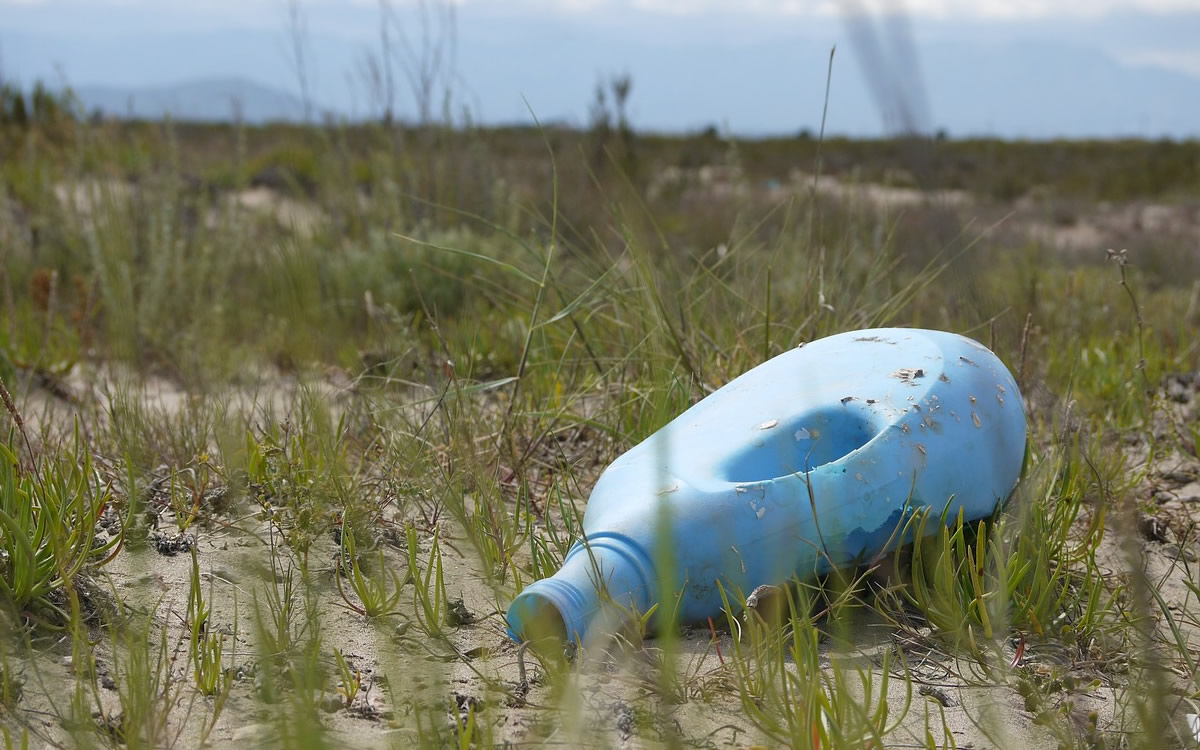
By Lindsay Street, Statehouse correspondent | It’s not exactly the homecoming welcome GOP Greenville Rep. Ashley Trantham wants to see after a long day in Columbia: litter piled up on roadways.
So over the last few years,, she said she has done some digging. While she says she’s not one to introduce legislation for the sake of legislation, she is looking at dropping multiple bills to address litter in South Carolina because litter is “not a priority for our state.”
She’s even thought of a catchy slogan: “Don’t be trashy, South Carolina.” Though that hasn’t quite caught on with state agencies she’s spoken with, she said.
Trantham said it’s time for the state to create a “litter game plan.”
Palmetto Pride Executive Director Sarah Lyles said the legislature-created nonprofit that focuses on litter has a plan.
“We are primarily a volunteer-oriented organization and help in the creating and implementing programs across the state to address litter prevention. We do this through enforcement, education, awareness and pickup. Our funding comes from donations, business sponsorships and court fines,” Lyles wrote in an email to Statehouse Report.
Trantham said she will likely begin her litter-control efforts with two bills: making towing companies responsible for wreck cleanup, and addressing huge sheets of plastic debris coming off transportation trucks.
Lyles said that while her group and state agencies work to cleanup main roads, secondary roads get little to no coverage except through local programs.
“The rural areas are in the greatest need for programs and pickup as they often are the most economically challenged,” Lyles said.
In other news:
![]() State pension bill introduced. A House bill that seeks to change the state’s pension plan from a “defined benefit” to a “defined contribution” (think the difference between a guarantee retirement percentage of your salary versus a 401(k) plan) was introduced this week by Bluffton Republican Rep. Jeff Bradley. The bill is co-sponsored by House Speaker Jay Lucas. See the bill here. Why? Because some lawmakers have felt that phase one didn’t go far enough in decreasing the state’s liability with pensions. Read our previous coverage about “phase two” of pension changes looming in South Carolina.
State pension bill introduced. A House bill that seeks to change the state’s pension plan from a “defined benefit” to a “defined contribution” (think the difference between a guarantee retirement percentage of your salary versus a 401(k) plan) was introduced this week by Bluffton Republican Rep. Jeff Bradley. The bill is co-sponsored by House Speaker Jay Lucas. See the bill here. Why? Because some lawmakers have felt that phase one didn’t go far enough in decreasing the state’s liability with pensions. Read our previous coverage about “phase two” of pension changes looming in South Carolina.
Question of Santee Cooper’s fate continues. As the question of what to do with massive public utility Santee Cooper has become nearly a primary-focus of the state legislature, here’s a roundup of headlines from this week’s coverage of Santee Cooper:
- NextEra purchase of Santee Cooper could shift costs, risks to taxpayers
- Senate panel listens to NextEra’s presentation to buy Santee Cooper
- State senators hold first hearing on Santee Cooper
- Santee Cooper releases reform plan
- Inside NextEra’s bid for utility, a way to charge for incomplete projects
- S.C. lawmakers could decide by mid-March on future of Santee Cooper
The House Ways and Means Committee has announced several Santee Cooper-related meetings for next week:
- 1 p.m. Feb. 24 in room 521 of the Blatt building for public testimony by the S.C. Department of Administration;
- 9 a.m. Feb. 25 in room 521 of the Blatt building for public testimony by NextEra Energy;
- 1 p.m. Feb. 26 in room 521 of the Blatt building for public testimony by Dominion Energy; and,
- 1 p.m. Feb. 27 in room 521 of the Blatt building for public testimony by Santee Cooper.
The Senate Finance Committee has announced these meetings for next week:
- 9 a.m. Feb. 25 in room 105 of the Gressette building for public testimony by Central Electric Cooperative and Santee Cooper; and,
- 9 a.m. Feb. 26 in room 105 of the Gressette building for public testimony by Santee Cooper.
Education bill keeps Senate tied up. A second attempt sought this week to limit debate in the Senate. A bipartisan group of Senators stopped it. Read more.
Ways and Means finalizes its version of the budget. House budget writers didn’t veer too far from Gov. Henry McMaster’s proposed executive budget, which called for $3,000 public teacher raises and $33 million set aside for state employee merit-based raises. House committee members also included a $25 disaster relief fund, and $100 million for rural roads. More. The budget will be printed in the next few days and lie on the desks of House members for two weeks. Members will begin the budget debate on the House floor before mid-March.
2020 candidate calendar
 Throughout the campaign season, we have been working to keep South Carolina informed of candidate events in the state. The S.C. Democratic Presidential Preference Primary is Feb. 29.
Throughout the campaign season, we have been working to keep South Carolina informed of candidate events in the state. The S.C. Democratic Presidential Preference Primary is Feb. 29.
Warren in North Charleston. Massachusetts Sen. Elizabeth Warren will talk about the church’s role in politics 1:30 p.m. Feb. 22. More info.
Big Tent Block Party in Georgetown. Candidates have been invited to speak at the Georgetown Democratic Headquarters 11 a.m. to 3 p.m. Feb. 22 in Georgetown.
Black history celebration and primary kickoff. Democratic presidential candidates have been invited to speak at the African American History Celebration and Democratic Presidential Primary Kickoff 3:30 p.m. to 6 p.m. Feb. 23 at Mason Temple Church of God in Christ in Conway.
CNN town halls in Charleston. Here are town halls being hosted by CNN at Memminger Auditorium in Charleston:
- Former New York Mayor Michael Bloomberg at 8 p.m. Feb. 24;
- Vermont Independent Sen. Bernie Sanders at 9 p.m. Feb. 24;
- Minnesota Democratic Sen. Amy Klobuchar at 7 p.m. Feb. 26;
- Former Vice President Joe Biden at 8 p.m. Feb. 26;
- Former South Bend Mayor Pete Buttigieg at 9 p.m. Feb. 26; and,
- Massachusetts Democratic Sen. Elizabeth Warren at 10 p.m. Feb. 26.
Steyer’s week in South Carolina. Billionaire Tom Steyer will hold several events next week before the Democratic primary Feb. 29.
- 2:30 p.m. Feb. 23 at 719 Magnolia Street West, Hampton.
- 4:45 p.m. Feb. 23 at 2 Trask Parkway, Yemassee.
- 8 a.m. Feb. 24 in Hilton Head Island Beach and Tennis Resort.
- 12:30 p.m. Feb. 26 in Georgetown. Info.
- 5:30 p.m. Feb. 26 in Myrtle Beach. Info.
- 8 a.m. Feb. 27 in Orangeburg. Info.
- 4:30 p.m. Feb. 27 on Johns Island. Info.
- 8 a.m. Feb. 28 in Sumter. Info.
Presidential candidate’s spouses luncheon. A luncheon with spouses of current Democratic presidential candidates is slated for noon Feb. 25 in the Cedar Room in Charleston. More info.
Final debate before the primary to be held in Charleston. The 10th 2020 Democratic presidential debate is Feb. 25 at the Gaillard Center in Charleston. It will be broadcast by CBS.
First in the South Dinner with candidates. Charleston will host the First in the South Dinner 7:30 p.m. to 9 p.m. Feb. 27 at the Charleston Marriott. More info.
Buttigieg in Columbia. Former South Bend Mayor Pete Buttigieg will attend a Get Out the Vote Town Hall 7-9 p.m. Feb. 28 in Columbia. More info.
Trump in North Charleston. Incumbent Republican President Donald Trump will hold a Keep America Great Rally 7 p.m. Feb. 28 at North Charleston Coliseum. More info.
- Have a comment? Send to: feedback@statehousereport.com
Graham to get mute button for 6 months

By Andy Brack, editor and publisher | Now is the perfect time to go on a media diet of one of our U.S. senators, Lindsey Graham.
 Graham’s sycophantic bad karma isn’t needed these days. For the next six months, I’m taking a vacation from Graham and his increasingly irrelevant rhetoric. When he’s a guest yet again on one of the Sunday political talk shows, I’ll turn off the TV. When there’s a story in the newspaper, I’ll ignore it. I’m unsubscribing to any email lists that mention him.
Graham’s sycophantic bad karma isn’t needed these days. For the next six months, I’m taking a vacation from Graham and his increasingly irrelevant rhetoric. When he’s a guest yet again on one of the Sunday political talk shows, I’ll turn off the TV. When there’s a story in the newspaper, I’ll ignore it. I’m unsubscribing to any email lists that mention him.
When Graham first went to Washington in 1995 as a House member, he seemed optimistic — a conservative who wanted to shake things up and who would talk straight enough that many Democrats grudgingly often agreed. Outspoken views and service as one of the House managers in the impeachment trial of President Bill Clinton got him noticed. Interestingly after the Clinton trial, he argued for witnesses to be called in that trial — exactly the opposite position in this year’s trial involving a Republican, President Trump.
After Graham won election to the U.S. Senate in 2002, he latched onto another maverick, U.S. Sen. John McCain, R-Arizona. This dynamic duo often defied traditional Republican positions, again earning respect from independents and some Democrats for sticking to principles, such as the need for bipartisan immigration reform. During the 2016 presidential election, Graham famously criticized Trump as a bigot and said he wouldn’t vote for him.
But as McCain moved toward death in 2018, something happened to Graham. Perhaps it was a political calculation to keep power. Perhaps he became rudderless, a fish out of water. Trump’s critic became Trump’s biggest enabler.
In a devastating January Rolling Stone story, “How Lindsay Graham lost his way,” McCain’s 2008 presidential campaign manager, Steve Schmidt, compared Graham to a pilot fish: “a smaller fish that hovers about a larger predator, like a shark, living off of its detritus. That’s Lindsey. And when he swam around the McCain shark, broadly viewed as a virtuous and good shark, Lindsey took on the patina of virtue. But wherever the apex shark is, you find the Lindsey fish hovering about, and Trump’s the newest shark in the sea. Lindsey has a real draw to power — but he’s found it unattainable on his own merits.”
Across South Carolina, observers on both sides of the aisle are disappointed, even embarrassed, by today’s version of Graham. Most of the dozen folks who offered thoughts on Graham wouldn’t speak on the record.
One seasoned politico: “Heck, Lindsey Graham doesn’t even agree with things he said three years ago. I don’t buy that it is some kind of blackmail forcing his changing positions — it is just who he is. A hollow man. I don’t need to hear more of that.”
An analyst: “He clearly works for Trump these days. Oddly, I don’t think it’s because he necessarily agrees with Trump on many things; I think he just thinks it’s a way to be relevant in the current political environment. He’s not the only one in government doing that. Unfortunately, I think all those folks will find there’s a long-term constitutional cost to their decisions. They are doing lasting damage.”
State Rep. Gilda Cobb-Hunter, D-Orangeburg, didn’t mince words, noting she stopped listening to Graham a while back: “I used to think he knew better and was playing the game to keep the right wing Trumpsters in his corner. Now I’m not so sure that he doesn’t believe all the nonsense he spouts.”
Political historian Dan Carter, who now lives in North Carolina, says he’s turning off the news, in general, to keep his health in check. “Why in heaven’s name has someone who professed to worship John McCain lick the boots of a man who repeatedly defamed his hero? … Various writers have ascribed various psychological motives for his disgraceful sycophancy. But in the end, I still fall back on the words English biographer John Boswell wrote to Samuel Johnson. ‘Men’s hearts are concealed. But their actions are open to scrutiny.’”
The mute button will get a workout over the next six month. But by Labor Day, we’ll stop using it. In November, Graham faces re-election and a serious Democratic challenger.
- Have a comment? Send to: feedback@statehousereport.com.
Conservation Voters of South Carolina
 The Conservation Voters of South Carolina is a statewide nonprofit organization that fights for the Palmetto State’s air, water, land and energy through political action. The organization is bipartisan, pragmatic and effective.
The Conservation Voters of South Carolina is a statewide nonprofit organization that fights for the Palmetto State’s air, water, land and energy through political action. The organization is bipartisan, pragmatic and effective.
Through scorecards and advocacy at the Statehouse, CVSC holds South Carolina legislators accountable for their votes and actions. As a small organization that operates as a nonprofit and has a political action committee, we have a big impact. Learn more today by clicking any of the links below:
Pettigru quote is very familiar
To the editor:
![]() Your quote by Petigru is how I started my book, Candidate Without a Prayer.
Your quote by Petigru is how I started my book, Candidate Without a Prayer.
“South Carolina is too small for a republic and too large for an insane asylum,” observed Congressman James L. Petigru, shortly after South Carolina seceded from the Union in 1860 and declared itself a republic. Had television existed, no doubt many of its politicians at that time would have been fodder for late-night comedians. I’ve lived in South Carolina since 1976, and stories that make our local politicians famous no longer surprise me. The comedy group Capitol Steps takes its name from the escapade involving former congressman John Jenrette, who had sex with his wife on the steps of the U.S. Capitol in the late 1970s. More recently, our former governor Mark Sanford had sex with his “soul mate” in Argentina, which he mistook for the Appalachian Trail. Come to think of it, South Carolina may not be “too large for an insane asylum.
— Herb Silverman, Charleston, S.C.
Make our day: Send us a letter or comment
We love hearing from our readers and encourage you to share your opinions. But you’ve got to provide us with contact information so we can verify your letters. Letters to the editor are published weekly. We reserve the right to edit for length and clarity. Comments are limited to 250 words or less. Please include your name and contact information.
- Send your letters or comments to: feedback@statehousereport.com
Water tower
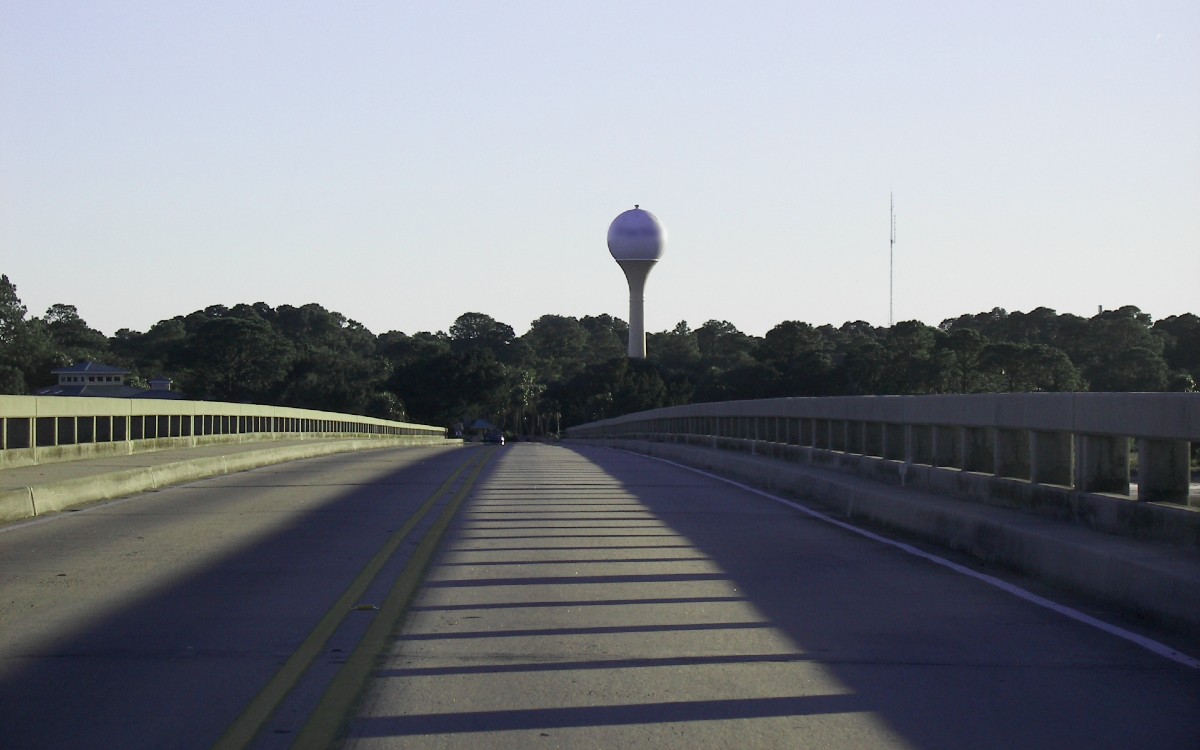
This may be a familiar looking water tower to some visitors and residents of South Carolina, but where is it? Send your best guess to feedback@statehousereport.com. And don’t forget to include your name and the town in which you live.
Our previous Mystery Photo
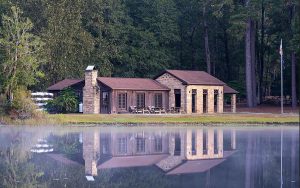 Our Feb. 14 image, “Tranquil setting,” was a photo taken by Sitka, Alaska, resident Thomas Jacobsen in Poinsett State Park in Sumter County. Several alert sleuths guessed it, including two state senators — Democrats Brad Hutto of Orangeburg and Thomas McElveen of Sumter. The park is in McElveen’s district. Others who correctly identified the building on the lake were Dwight Cauthen, Jean Prothro and Jay Altman, of Columbia; Montez Martin of Charleston; and George Graf of Palmyra, Va.
Our Feb. 14 image, “Tranquil setting,” was a photo taken by Sitka, Alaska, resident Thomas Jacobsen in Poinsett State Park in Sumter County. Several alert sleuths guessed it, including two state senators — Democrats Brad Hutto of Orangeburg and Thomas McElveen of Sumter. The park is in McElveen’s district. Others who correctly identified the building on the lake were Dwight Cauthen, Jean Prothro and Jay Altman, of Columbia; Montez Martin of Charleston; and George Graf of Palmyra, Va.
Martin shared a Wikipedia summary of the park: “Sumter County donated 1,000 acres for the park, which opened to the public in 1936. Many buildings still in use at the park were built by the Civilian Conservation Corps from locally quarried coquina rock. Coquina is a young limestone in which fossil seashells are still readily apparent. Poinsett State Park was the first of many parks built by the CCC in South Carolina. During the days of racial segregation, the nearby state park for blacks was Mill Creek Group Camp. The park was closed in 1963 for a year, along with all of South Carolina’s state parks, due to a Federal court order to desegregate the parks, and it wasn’t until 1966 that all its facilities were reopened. The park’s historical elements were listed on the National Register of Historic Places in 2016.”
- Send us a mystery: If you have a photo that you believe will stump readers, send it along (but make sure to tell us what it is because it may stump us too!) Send to: feedback@statehousereport.com and mark it as a photo submission. Thanks.
ABOUT STATEHOUSE REPORT
Statehouse Report, founded in 2001 as a weekly legislative forecast that informs readers about what is going to happen in South Carolina politics and policy, is provided to you at no charge every Friday.
Meet our team
- Editor and publisher: Andy Brack, 843.670.3996
- Statehouse correspondent: Lindsay Street
Buy the book
Now you can get a copy of editor and publisher Andy Brack’s We Can Do Better, South Carolina! ($14.99) as a paperback or as a Kindle book ($7.99). . The book of essays offers incisive commentaries by editor and publisher Andy Brack on the American South, the common good, vexing problems for the Palmetto State and interesting South Carolina leaders.
More
- Mailing address: Send inquiries by mail to: 1316 Rutledge Ave., Charleston, SC 29403
- Subscriptions are free: Click to subscribe.
- We hope you’ll keep receiving the great news and information from Statehouse Report, but if you need to unsubscribe, go to the bottom of the weekly email issue and follow the instructions.
- © 2020, Statehouse Report, a publication of City Paper Publishing, LLC. All rights reserved.
- Read our sister publications: Charleston City Paper (every Wednesday) | Charleston Currents (every Monday)















 We Can Do Better, South Carolina!
We Can Do Better, South Carolina!